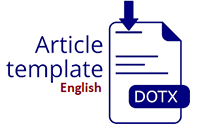KOMPETENSI GURU PENDIDIKAN AGAMA ISLAM SD NEGERI DI KECAMATAN BATANG ANGKOLA
Abstract
This research was carried out with the aim to find out the competence of Islamic elementary education teachers in the District of Batang Angkola. Based on Minister of Religion Regulation No. 16 of 2010, wherein it is explained that there are five teacher competencies, namely pedagogical competence, personal competence, social competence, and professional competence and leadership competency because this research is specifically for PAI teachers, so it is added with religious competence. The purpose of this study provides an overview of the competence of PAI teachers.
The research method used in this research is descriptive qualitative method, the research used to find out or describe the reality of the events under study or research conducted on independent variables without making comparisons with other variables. Data collection techniques carried out in the form of observation, interviews with all informants who have been determined purposively and document study. Data analysis technique is done by data reduction, presentation and conclusion drawing.
Based on the results of the study, it can be concluded that the Competency Profile of PAI Teachers in Public Elementary Schools in Batang Angkola Subdistrict are as follows: (1) Pedagogical competencies are categorized as good, except for indicators of understanding towards learners and the implementation of educative and dialogical learning; (2) Personality competencies are categorized as good, except for the indicators of presenting themselves as individuals who are steady, stable, mature, and become role models; (3) Social competence is categorized as good, with the exception of indicators of ability to communicate, especially with cues and adaptation in places throughout the territory of the Republic of Indonesia which have social and cultural diversity; (4) Professional competence is categorized quite well, where PAI teachers can master the subject matter and have the ability to deliver material widely; (5) Leadership competencies are categorized as good; (6) Religious competence can be categorized as good.
Because there are still a number of indicators that are still low or not good in each competency, the recommendations of this study are (1) For the Department of Education in the South Tapanuli Regency to make policies that are in line with the ability of special teachers in the Batang Angkola District area; (2) School principals are expected to improve the quality of PAI teachers; (3) For PAI teachers further enhance their teaching.
Â
Keywords: Pedagogic Competence, Personality competence, Social Competence, Professional competence, Leadership competence and Religious competence.
Full Text:
PDFReferences
Aqib, Zainal, Pendidikan Karakter: Membangun Perilaku Positif Anak Bangsa, Bandung: Yama Widya, 2006.
Arikunto, Suharsimi, Prosedur Penelitian, Cet. 14, Jakarta: Rineka Cipta: 2010.
Kholil, Syukur, Metodologi Penelitian Komunikasi, Bandung: Cita Pustaka Media, 2006.
Majid, Abdul, Perencanaan Pembelajaran Mengembangkan Standart Komptensi Guru, Cet. 3, Bandung: Remaja Rosdakarya, 2007.
Moleong, Lexcy J. Metodologi Penelitian Kualitatif Edisi Revisi, Bandung: Rosdakarya, 2004.
Musfah, Jejen, Peningkatan Kompetensi Guru Melalui Pelatihan Dan Sumber Teori Dan Praktik, Jakarta: Kencana, 2011.
Nurdin, Syafruddin, Dan Basyiruddin Usman, Guru Professional Dan Implementasi Kurikulum, Jakarta: Ciputat Press, 2002.
Rusman, Model-Model Pembelajaran: Pengembangan Profesionalisme Guru, Jakarta: Raja Grafindo, 2011.
Saefullah, Manajemen Pendidikan Islam, Bandung: Pustaka Cipta, 2012.
Sagala, Syaiful, Kemampuan Professional Guru Dan Tenaga Kependidikan, Bandung: Al-Fabeta, 2013.
Sahertian. Piet A. Dan Ida A. Sahertian, Supervisi Pendidikan Dalam Rangka Program Intensive Education, Jakarta: Bineka Cipta, 1990.
Soewando, Sistem Pengajaran Kurikulum Berbasis Kompetensi, Jakarta: Pusat Kurikulum Balitbong, Depdiknas, 2002.
Suharsimi Arikunto, Prosedur Penelitian Edisi Revisi, Jakarta: Bumi Aksara, 1993.
Undang-Undang Dan Peraturan Pemerintah Tentang Pendidikan, No. 14 Tahun 2005.
Usman, Moh. Uzer Menjadi Guru Professional, Bandung: Remaja Rosdakarya, 2006) H. 4.
DOI: https://doi.org/10.36987/ecobi.v2i1.1639
Refbacks
- There are currently no refbacks.

